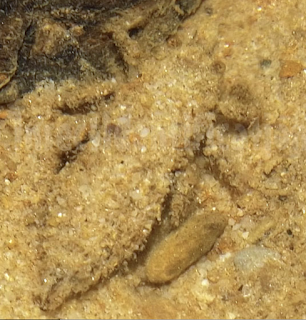 |
| Black rockfish [Steve Lonhart WikiCommons] |
Black rockfish Sebastes melanops
The black rockfish, also known variously as the black seaperch, black
bass, black rock cod, sea bass, black snapper and Pacific Ocean perch,
is a species of marine ray-finned fish belonging to the subfamily Sebastinae, the rockfishes, part of the family Scorpaenidae. It is sometimes misidentified as the "red snapper". (Wikipedia)
Rising temperatures take toll on coastal waters
Warmer summers, heat domes and marine heat waves are transforming B.C.’s
coastal waters, and the consequences may well be far-reaching and
long-lasting, a series of recent studies suggest. Over the past decade,
90 per cent of sunflower sea stars have disappeared from B.C. waters.
The near-extinction of the colourful, many-armed seafloor-dwelling
predator has removed checks on the region’s sea urchin populations,
which inhabit rocky reefs and voraciously eat kelp. Monique Keiran
reports. (Times-Colonist)
International research team to probe salmon mysteries in North Pacific
An international team of more than 60 scientists on four vessels is
headed out on rough winter seas to investigate West Coast and Alaska
salmon in the North Pacific. The Shimada, a flagship research
vessel of the National Oceanic and Atmospheric Administration, will
depart Port Angeles Tuesday to join the expedition with ships from
Canada and Russia. The scientists will search for salmon as they probe
mysteries that have long bedeviled scientists seeking to better
understand the Pacific salmon that support cultures, communities and
ecosystems across western North America. Lynda Mapes reports. (Seattle
Times)
Anticipated Salish Sea vessel traffic increases spark calls for more environmental protections
Fossil fuel and terminal expansion projects up and down the Salish Sea
are estimated to boost annual shipping vessel traffic by at least 25% in
the near future, and the projected increase has raised concerns about
increased risk to the environment. Clifford Heberden reports. (Salish
Current)
Canada’s biggest emitters are paying the lowest price on carbon
Oil and gas producers pay among the lowest average carbon costs of any
sector – and it’s threatening Canada’s climate targets. Yannic Rack
reports. (The Narwhal)
Keep walking, or keep off? Guemes beach-walking pushes question of private property versus public access
Disagreement between those who hold to a long-established practice on
Guemes Island of public access to walking across privately owned
tidelands and a property owner's opposition to what he sees as
trespassing has evolved into a lawsuit. The underlying issue of public
access to privately owned tidelands has been decided for other Pacific
Coast states and for Washington state's oceanfront beaches, but not yet
for beaches that surround the Salish Sea. Lauren Gallup reports. (Salish
Current)
Bans on fossil fuel heating in new homes gain steam as world aims for net-zero emissions
Vancouver and Quebec recently banned certain kinds of fossil fuel-based
heating in new home construction. Similar — and, in some cases more
extensive — bans are happening around the world, from Norway to New York
City. The goal? To cut CO2 emissions from buildings by replacing fossil
fuel burning with electric heating. But are such bans necessary? And
what impact will they have on people who live in those cities? Here's a
closer look. Emily Chung reports. (CBC)
This new climate change solution could be tested on Whatcom, Skagit farms
The Whatcom-based organization Kulshan Carbon Trust is launching a pilot
program in the coming months to experiment with a type of charcoal
called biochar. When this substance is spread on the land, it has been
shown to suck planet-warming greenhouse gases out of the atmosphere
while boosting crop yield and tree growth. Ysabelle Kempe reports.
(Bellingham Herald)
Atmospheric Rivers Spur Debates on Flood Management in Washington State
After a series of storms dumped unprecedented amounts of rainfall on the
northwestern corner of Washington last November, small communities in
the Nooksack Valley were left severely flooded and asking questions
about how to prevent flood damage in the future. But finding a solution
to flooding isn’t easy. The region is home to a diversity of
stakeholders, including Indigenous tribes, community leaders,
gravel-extracting firms, and agricultural landowners, whose interests,
such as protecting fish habitat, commercial business, and private
property, often come into direct conflict with flood prevention
measures. Emily Denny reports. (Columbia Climate School)
Now, your tug weather--
West Entrance U.S. Waters Strait Of Juan De Fuca-
241 AM PST Mon Jan 31 2022
SMALL CRAFT ADVISORY IN EFFECT THROUGH TUESDAY AFTERNOON
TODAY
W wind 20 to 30 kt easing to 15 to 25 kt in the
afternoon. Wind waves 3 to 5 ft. W swell 11 ft at 10 seconds
subsiding to 9 ft at 10 seconds in the afternoon. A chance of
rain in the morning then a slight chance of rain in the
afternoon.
TONIGHT
NW wind 5 to 15 kt rising to 15 to 20 kt after
midnight. Wind waves 1 to 3 ft. W swell 10 ft at 10 seconds.
"Salish Sea News & Weather" is compiled as a community service by Mike Sato. To subscribe, send your name and email to mikesato772 (@) gmail.com. Your email information is never shared and you can unsubscribe at any time.
Salish Sea News: Communicate, Educate, Advocate
Follow on Twitter.
Salish Sea Communications: Truth Well Told












